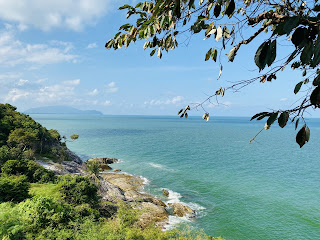NELSON MANDELA
AND 27 YEARS OF PRISON
G'day folks,
Born in 1918, Nelson Mandela belonged to a royal family of the Xhosa-speaking Thembu tribe in the South African village of Mvezo, where his father was chief.
After he died in 1927, nine-year-old Mandela was adopted by a high-ranking Thembu regent who saw his young ward as a future tribal leader.
Their relationship came to an end some years later when Mandela learned
that his guardian had arranged a marriage for him. Rather than go
through with it he fled to Johannesburg and took a job as a night
watchman.
It was a sad turn of events for a man who had been the first in his
family to receive a formal education. Mandela — then known by his birth
name, Rolihlahla — had completed his primary studies at a missionary
school.
At the time it was common practice for teachers to give African students
English names. So when he was seven years old Rolihlahla became Nelson.
In later years, as a sign of respect, many people referred to him as
Madiba, his Xhosa clan name.
Mandela may have needed the night watchman job to earn money but he
moved on to study law at Johannesburg’s University of the Witwatersrand,
and qualified as a lawyer in 1942 at the age of 24.
Two years later, disturbed by the racial prejudice that had become rife
in South Africa, he joined the African National Congress (ANC), a
political group seeking equal rights for black people.
It faced a monumental challenge in its struggles after the 1948 election
victory of the Afrikaner-dominated National Party, which introduced its
formal system of racial classification and segregation — apartheid
(separate development).
While maintaining white minority rule, apartheid meant that by law the
basic rights of non-whites were heavily restricted. Not only were they
unable to serve in government, they weren’t even allowed to live in the
same areas as whites or go to the same schools. They could not share a
table in a restaurant with whites, nor sit next to them on a train or
bus.
In retaliation, the ANC launched its Campaign for the Defiance of Unjust
Laws and called for boycotts, strikes, civil disobedience and other
non-violent protests. Mandela travelled across the country to organise
protests.
His activities became too much for the authorities so in 1956 he was
arrested on a trumped-up charge of treason. Mandela was held at a prison
in Johannesburg for five years before the charge was dropped and he was
released.
The ANC, which became a banned organisation while Mandela was behind
bars, had always advocated peaceful protest. But after he came out of
jail Mandela and other ANC leaders decided to set up a secret military
group called Umkhonto we Sizwe, or Spear of the Nation.
It was a fateful decision. In 1963, the police found weapons and
documents belonging to the secret group, which led to the arrest of
Mandela and seven others. They were charged with plotting to overthrow
the government and each was sentenced to life imprisonment.
Mandela would spend the next 27 years in jail, initially on Robben
Island, seven miles off the coast of Cape Town. After 18 years he was
transferred to the first of two inland prisons.
Whilst behind bars he was quoted as saying: “I have cherished the ideal
of a democratic and free society in which all persons live together in
harmony and with equal opportunities. It is an ideal which I hope to
live for and to achieve. But if needs be, it is an ideal for which I am
prepared to die.”
Over the years he became one of the world’s most famous prisoners and there were international campaigns to ‘Free Nelson Mandela’.
At the same time South Africa came under increasing pressure to abolish
the apartheid system and by the mid-1980s it found itself among the
world’s pariah states, the subject of economic, sporting and cultural
boycotts that affected almost every aspect of life.
It all came to a head in 1989 when President (Pieter Willem) “P.W.”
Botha suffered a stroke. The reforming (Frederik Willem) “F.W.” de
Klerk, who had held secret talks with Mandela in his cell, took his
place – first as party leader, and later as President.
Knowing that the apartheid system was leading to both economic and
political bankruptcy, de Klerk was bent on reform. As President, he
released all important political prisoners in 1990, including Mandela,
and lifted the ban on the ANC. His government then began systematically
to dismantle apartheid.
Mandela became President of the ANC in 1991 and worked with de Klerk in
bringing an end to apartheid while introducing equal rights for all.
They shared the Nobel Peace Prize in 1993 “for their work for the
peaceful termination of the apartheid regime, and for laying the
foundations for a new democratic South Africa."
The country’s first all-race elections, held in April 1994, saw the ANC
win a majority of seats in the new National Assembly. Mandela became
South Africa’s first black President with de Klerk as his deputy in a
government of national unity.
An iconic figure around the world symbolising peace, equality and
determination, Mandela retired from politics in 1999 and set out to live
a quiet life with his third wife, Graça. He said: “I have retired, but
if there's anything that would kill me it is to wake up in the morning
not knowing what to do.”
A lung infection brought his days to an end and he died in December 2013 at the age of 95. The world mourned his loss.
Clancy's comment: What an interesting life.
I'm ...





No comments:
Post a Comment